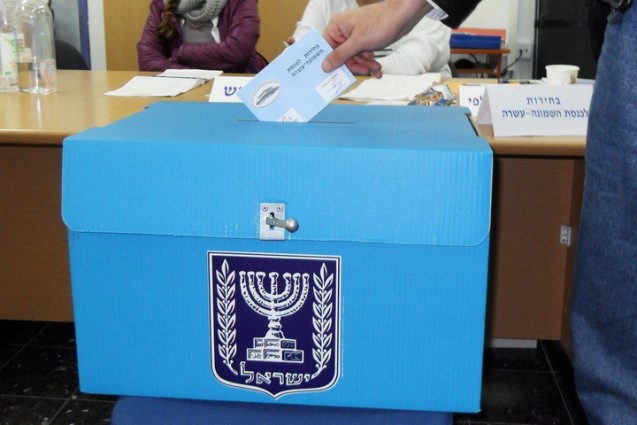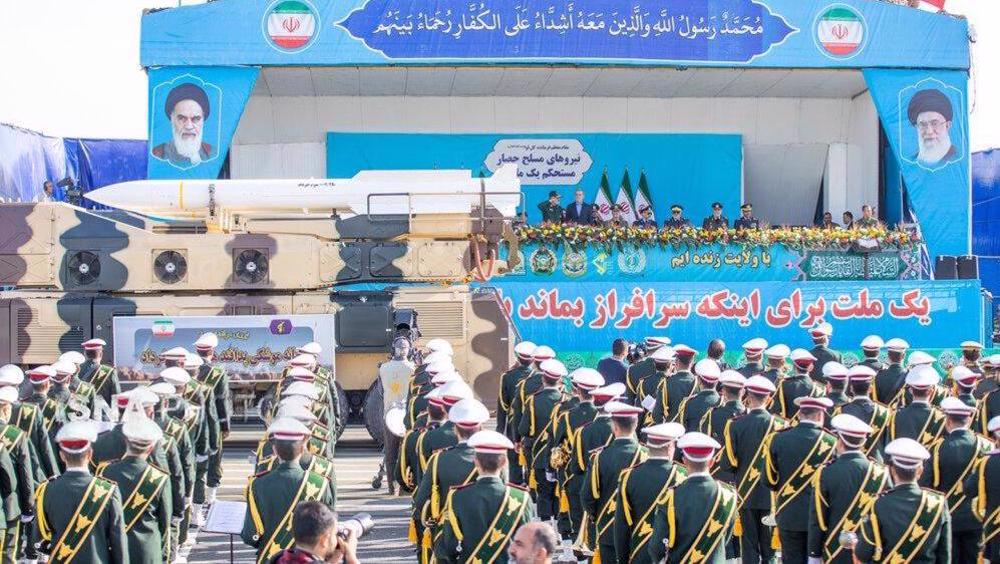UPDATES
Israel Heads to the Polls: Is an Iran strike now off the table?
May 4, 2012 | Ahron Shapiro

Israel was abuzz this week with news that Israeli Prime Minister Binyamin Netanyahu had decided to set a date for early elections. While the official announcement is still days away, government sources reported the likely date of elections to be September 4.
The timing of the elections was said to be primarily influenced by two date constraints: Too early and it would encroach upon the height of the summer season, when many Israelis travel or are otherwise on holiday; too late and it might conflict with the Jewish High Holidays.
The Times of Israel’s Raphael Ahren has offered a snapshot of the issues that will likely come into play in the coming months as the election campaign heats up.
Netanyahu, who is on pace to be Israel’s longest serving Prime Minister since Ben Gurion and has benefited from a dearth of political challengers during his term, is seen by poll-watchers as having little to fear from early elections. Latest polling figures show that if the elections were held today, Netanyahu would be a shoo-in, with 48 percent of Israelis preferring Netanyahu stay on as prime minister. (Of course, as always in Israel, the next government will be a coalition of parties, and heavily shaped by how other smaller parties perform in the election as much as by how well Netanyahu’s Likud polls)
With such numbers, it’s not surprising that some pundits are already looking past the election.
On Commentary‘s website, Jonathan Tobin wrote that the endorsement of the Israeli public of Netanyahu’s policies as evidenced by his expected reelection will present some inconvenient truths to the likes of Peter Beinart, who have questioned Israel’s direction under the current government.
The voters will have the opportunity to throw out Netanyahu and elect a government more in line with the views of Beinart and J Street. But, if as widely expected, they return Netanyahu to power with an even larger majority, shouldn’t there be some expectation these “liberal Zionists” will respect the will of the people?
Meanwhile, Global Research in International Affairs (GLORIA) Center director Barry Rubin has written a column explaining why he believes Netanyahu’s win is a foregone conclusion.
According to polls, Netanyahu’s Likud party may go from 28 to 30 seats in the 120-member Knesset. That may not sound like a big percentage but with around 12 different parties likely to win seats that margin would be sufficient.
One key element in this equation is that the country is doing pretty well. True, it faces serious security problems but that’s the norm for Israel. Indeed, with no other trusted leader on the horizon, Netanyahu is the one most trusted to manage that dangerous situation.
True, too, there has been increasing attention paid to social problems, including the gap between low salaries and high living costs that provoked protests earlier this year. That the protests have dissipated and Israel’s economy is doing better-including low unemployment, low inflation, and manageable state debt-than any other in the West, partly due to the same economic problems that impose those social costs.
A third factor is the total fractionalization of the opposition.
Yet with Netanyahu’s re-election bid deemed likely, the more immediate question being asked is what impact, if any, the decision to hold early elections will have on Israel’s strategy vis-à-vis Iran.
On Wednesday, in a response to a question posed by an Israeli visitor to Israeli Defence Minister Ehud Barak’s Facebook page, Barak insisted that the prospect of elections would not affect the Israeli government’s strategies regarding Iran in the slightest. Later that day, Reuters moved a story based on Barak’s response.
“Elections will not affect deliberations of the professional echelon in everything regarding the Iranian issue,” Barak said … adding that Israel still saw military force as among “options on the table”.
Many pundits, however, have opined that elections will in some way figure into Israel’s strategy against Iran.
At the Atlantic, Jeffrey Goldberg believes that Netanyahu will be less inclined to gamble on a risky attack on Iran with his reelection at stake.
“Netanyahu is appear [sic] to be going for early elections. He’s popular right now, the opposition is weak, and he looks to be going to try to solidify his hold on power, and possibly re-order his coalition, to bring in centrist parties and dump some of the lunatics in his cabinet. It makes little political sense for him to launch an attack on Iran in the run-up to an election. He’s a fairly cautious man (again, look at his record of going to war vs. that of Ehud Olmert), and in any case, the election campaign will coincide with the P5 + 1 talks.
The question to ask at the current moment is: When exactly will these elections take place, if they take place? If they’re held in August, and assuming that Netanyahu will be able to form a government in four-to-eight weeks, this will take us into late September, or early October. Still time, in other words, to launch an attack before the American presidential election. But if the Israeli elections aren’t scheduled until September, then it looks as if he wouldn’t have time to launch an attack. And, as I’ve written before, if Netanyahu doesn’t launch an attack before November, then I doubt he’ll launch an attack at all.”
(Goldberg’s post, it is worthwhile to note, was in response to his colleague James Fallows analysis of the likelihood of Israel striking Iran.
Both Fallows and Goldberg agree that the chances of a strike in the short term are low, but offer different rationales for their opinions.)
The Los Angeles Times, reporting on the prospect of early Israeli elections, also poured cold water on the current chances for a pre-emptive Israeli strike on Iran. However, government sources cited in the story reminded the reporter of a historic precedent for an Israeli strategic bombing strike ahead of an election.
[Israeli officials] note that in 1981, then-Prime Minister Menachem Begin destroyed Iraq’s nuclear facility just a few weeks before elections, a move that many believe helped him win a tight race against Shimon Peres. One government official suggested that elections might even provide the perfect guise to persuade Iranians to drop their guard.
Ahron Shapiro
Tags: Israel





